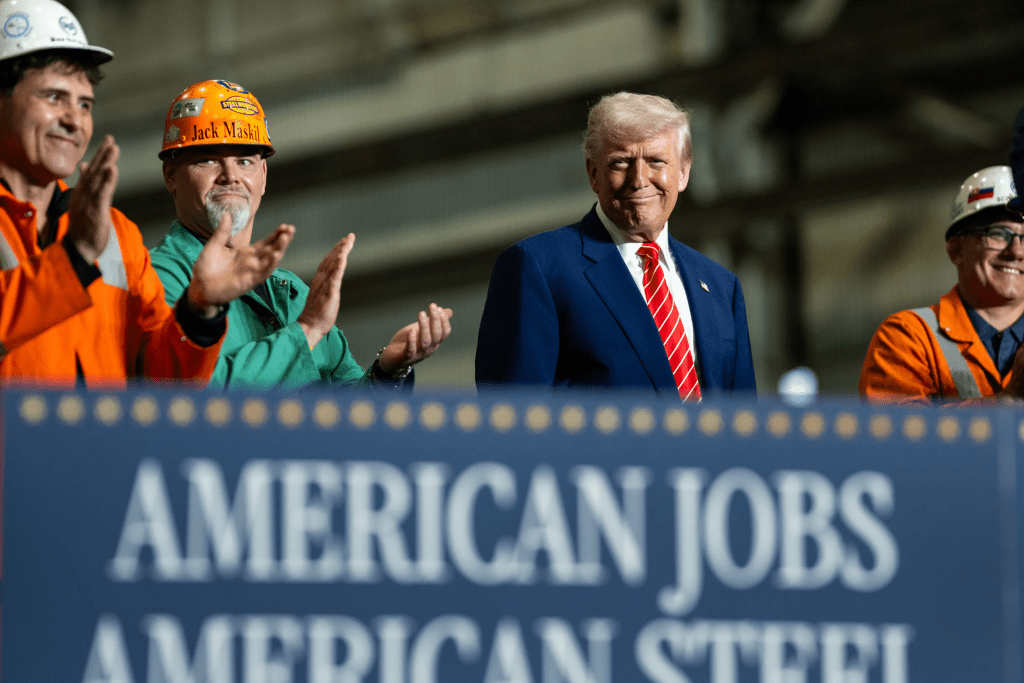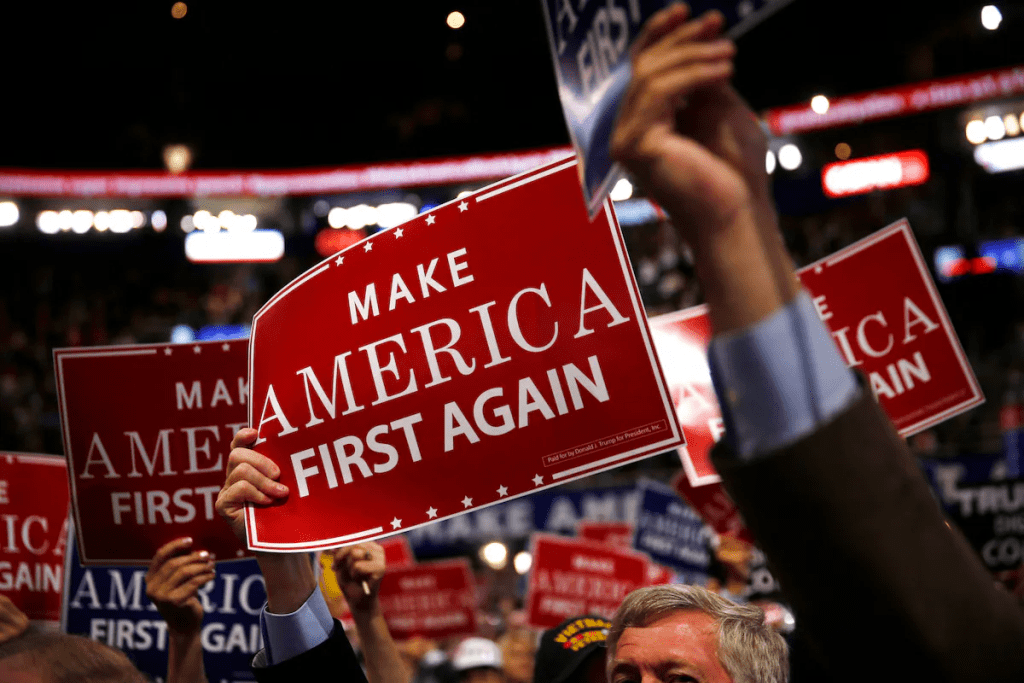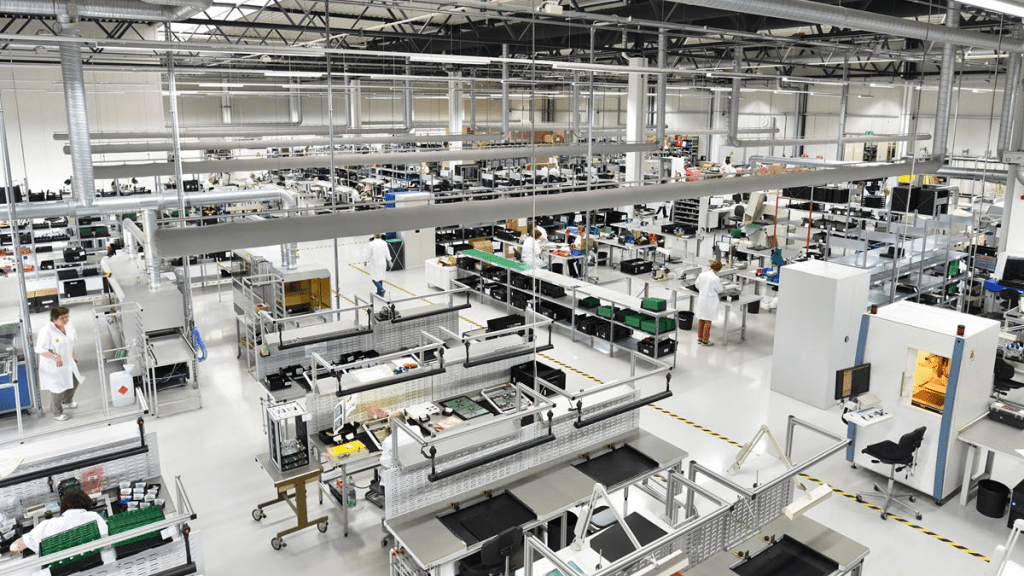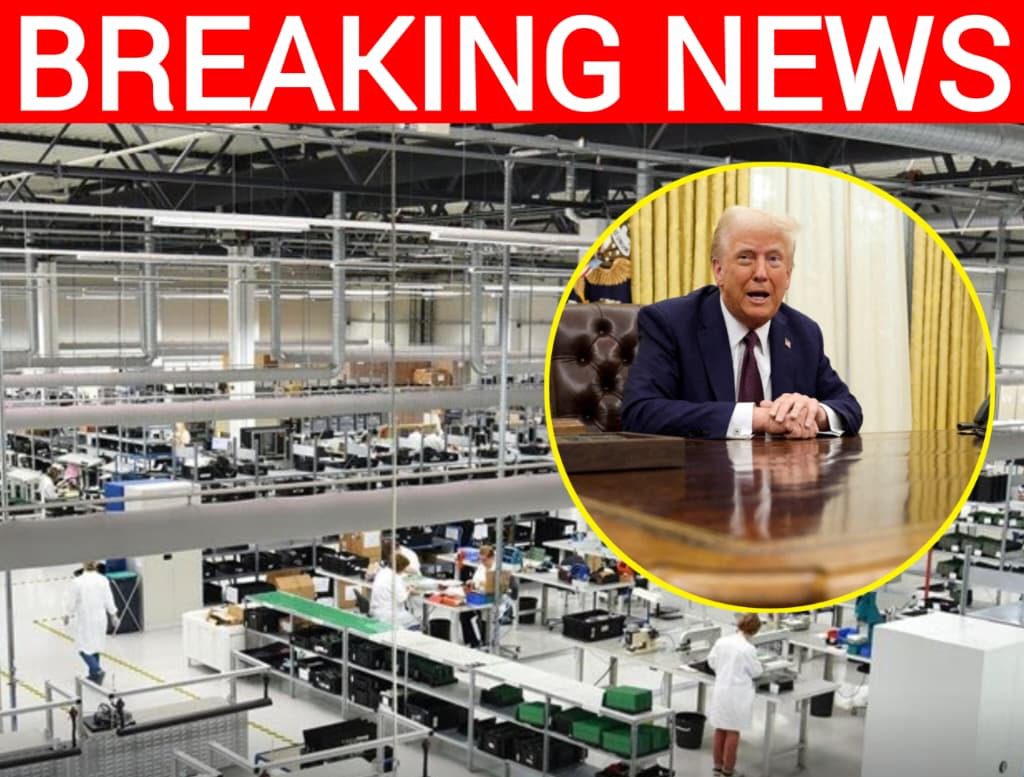President Trump Calls on Foreign Companies to Train U.S. Workers Instead of Importing Labor in Bold America First Push
President Donald Trump has once again tapped into a message that strikes deep with his supporters and many ordinary Americans. In a new statement, Trump made it clear that while he welcomes foreign investment and outside companies who want to bring their business to the United States, he does not welcome the idea of replacing American workers with imported labor. Instead, he wants those companies to bring their expertise, their knowledge, and their training into America so that U.S. workers can learn, grow, and eventually lead in industries where the country has slipped behind.

He pointed out examples like chips, semiconductors, and shipbuilding, reminding people that there was once a time when America was unmatched in these fields. Trump said there was an era when the U.S. could build a ship a day, while now the nation barely manages to build one a year. For him, this decline is not just about economics—it’s about national pride and the dignity of work. His message is clear: America should not only welcome investment but also use it as an opportunity to retrain and empower its own people.
What makes this message resonate is how it balances openness with firmness. Trump is not telling foreign companies to stay out of America; in fact, he says he welcomes them. But he is drawing a line when it comes to American jobs. He insists that U.S. workers must be the ones filling those positions, even if it means companies need to take time to train them up. In his words, “We welcome them, we welcome their employees, and we are willing to proudly say we will learn from them, and do even better than them at their own game.”

This idea taps into a nostalgia many Americans feel about a time when the nation produced more of its own goods, built its own machines, and didn’t rely so heavily on imports. Trump’s call is not just about stopping jobs from leaving—it’s about rebuilding the skills that once made America the envy of the world. He is essentially telling workers that they can rise again, that there is nothing wrong with learning from other nations, but that ultimately America will take those lessons and excel.
For many families who have seen factories close, who have watched shipyards go quiet, and who know the pain of communities hollowed out by lost industry, this message feels personal. Trump is giving voice to the frustration that while investment comes in, the jobs too often don’t go to locals. His promise to make sure Americans are trained and prioritized is one that resonates on a very human level.

It also underscores a political theme that has defined much of Trump’s career: putting Americans first. Whether it is trade, immigration, or labor, his stance has consistently been that the American worker must not be overlooked. In a world where economies are deeply globalized, his call for training and learning rather than replacement feels both realistic and deeply patriotic.
The message was not delivered with hostility but with determination. Trump even made clear that he does not want to frighten away foreign companies, only that he wants them to invest in the American people as much as they invest in the American market. It’s a line that will surely play well with his base, but also one that speaks to the wider population’s desire to see the United States stand tall again in industries it once dominated.
Whether this push will turn into concrete policy or remain a rallying cry is yet to be seen. But the passion behind it, and the way it connects with workers across the nation, suggests that Trump knows exactly how to touch the heart of the America First message.


